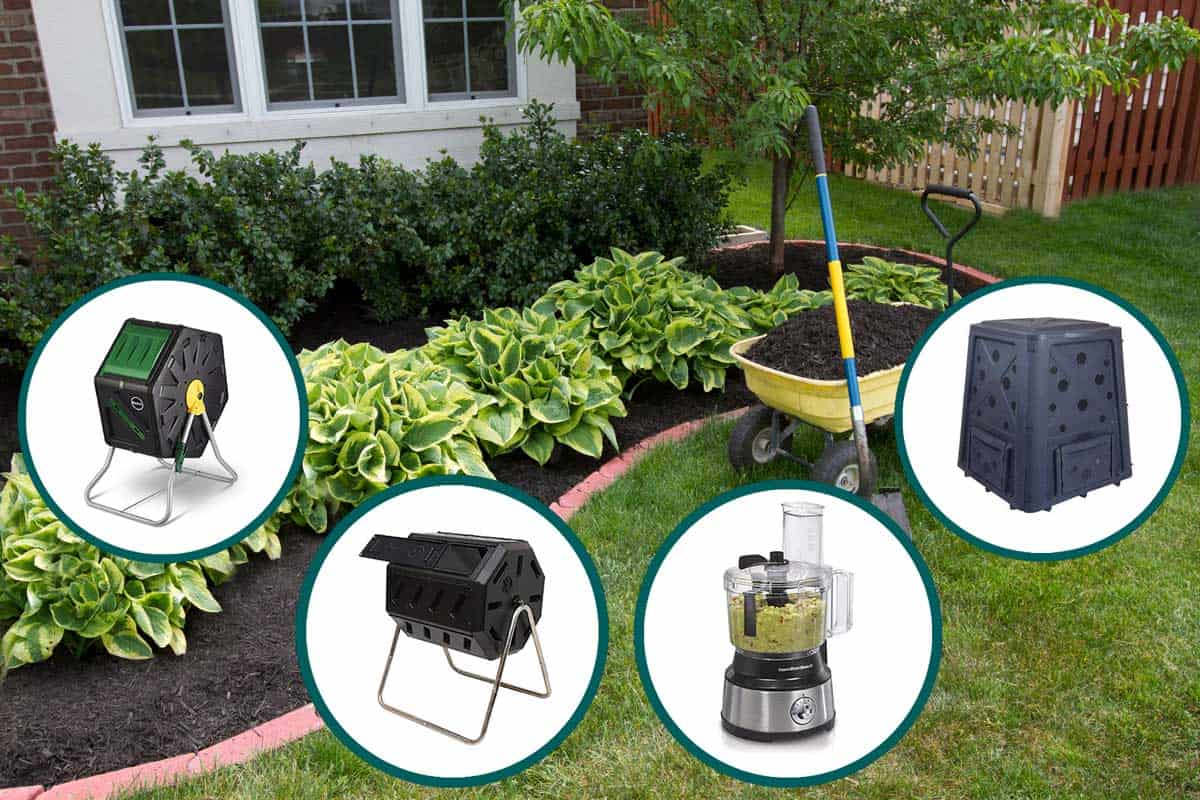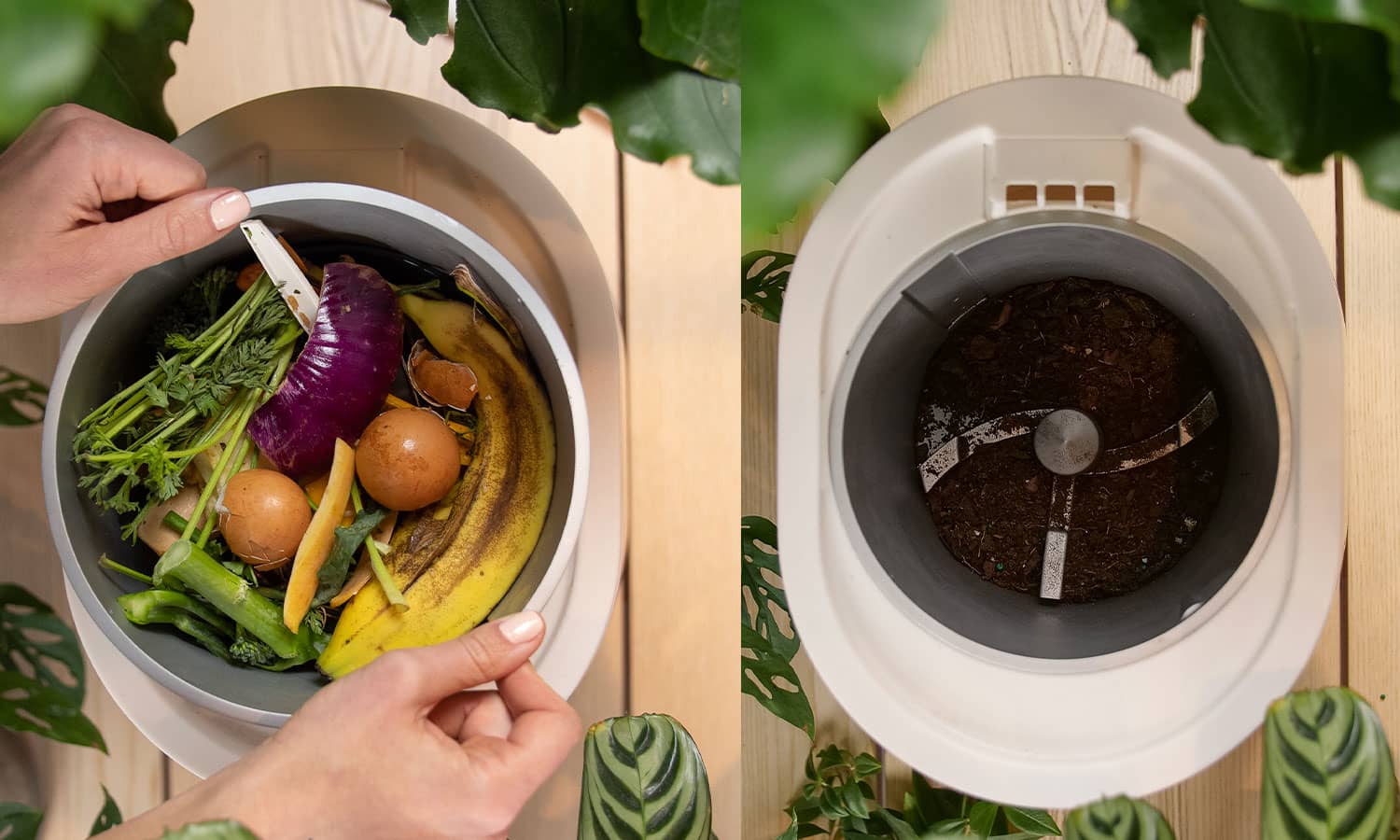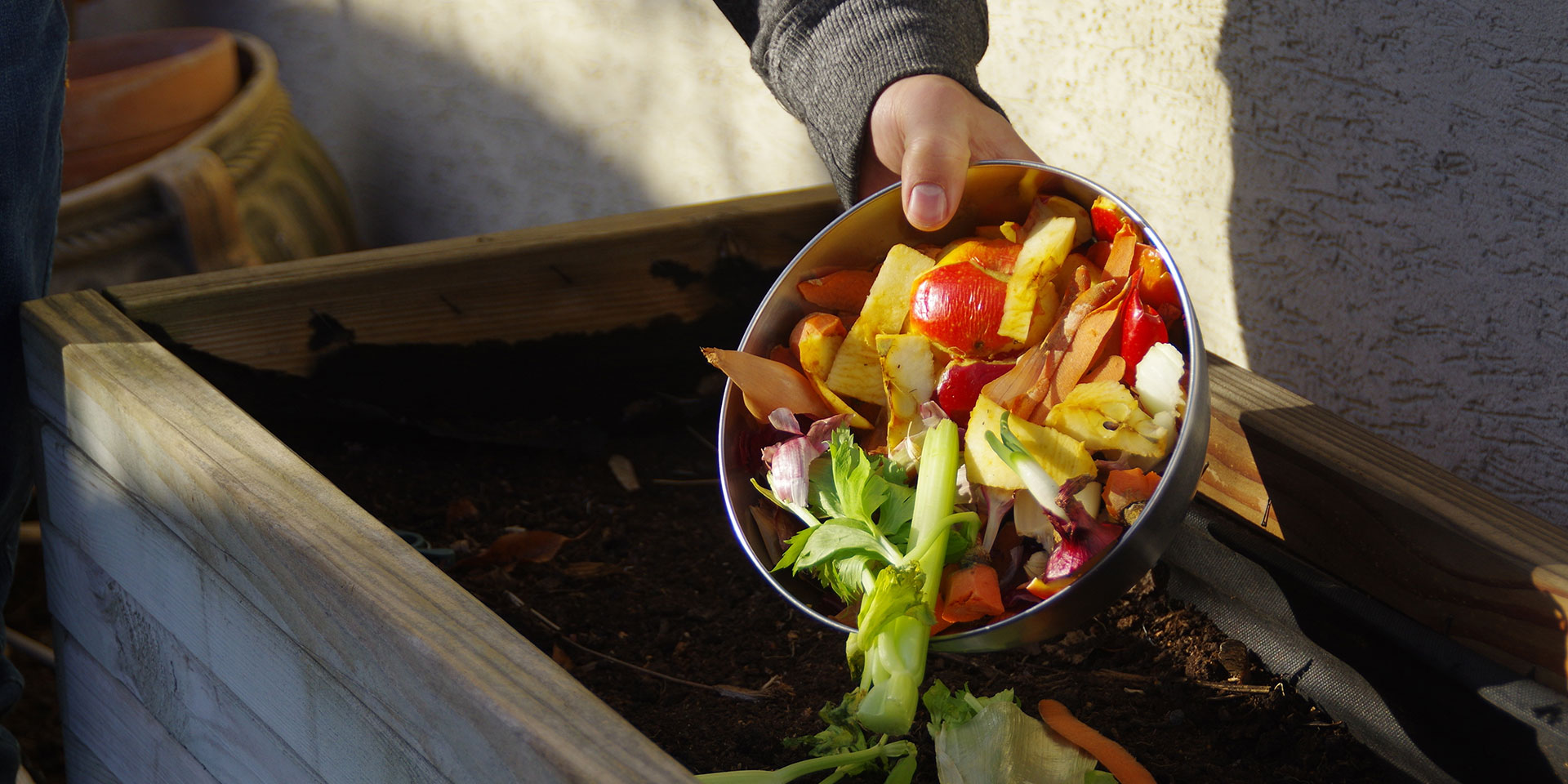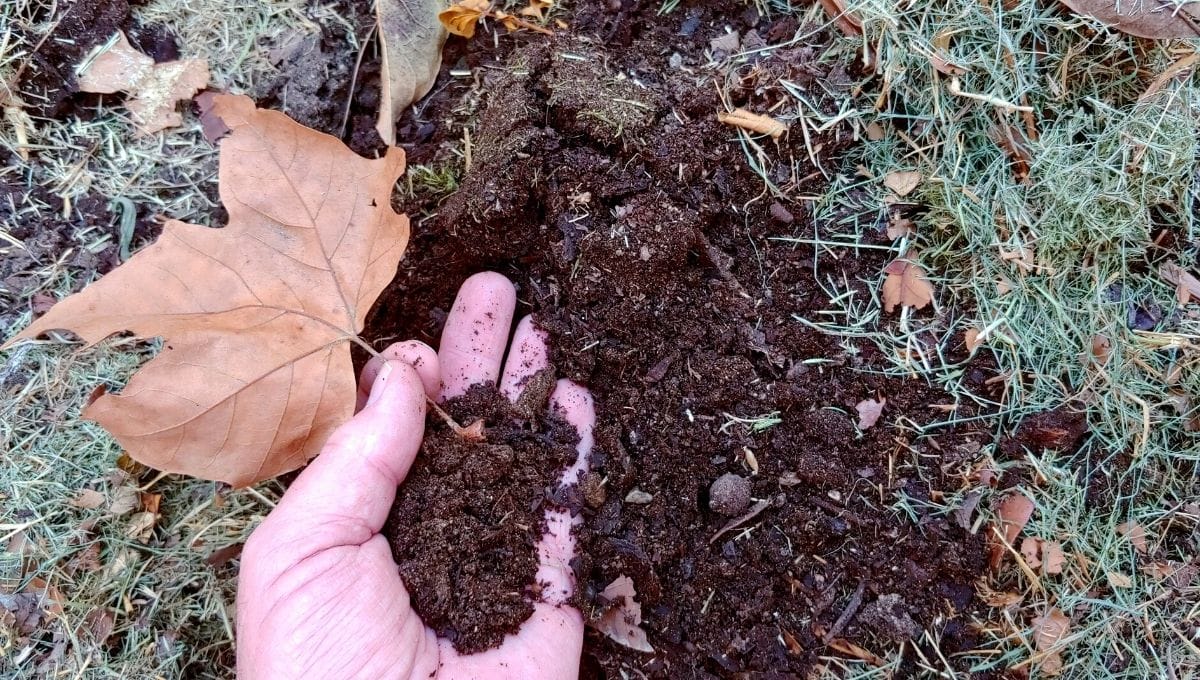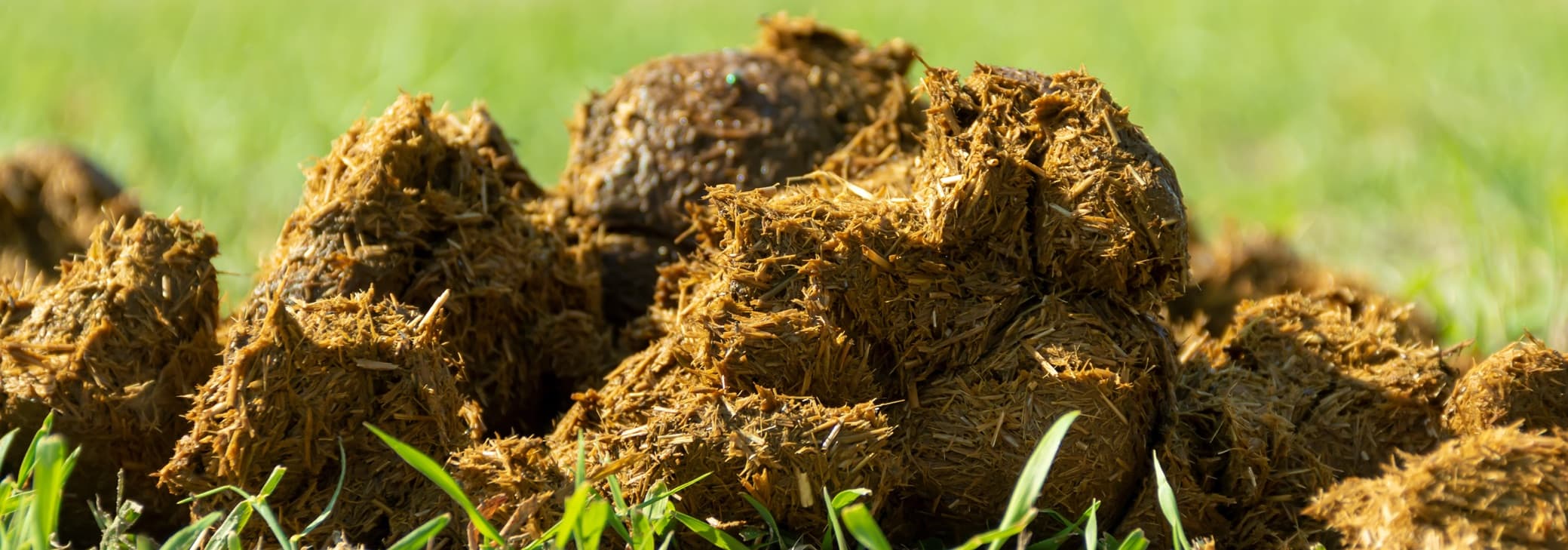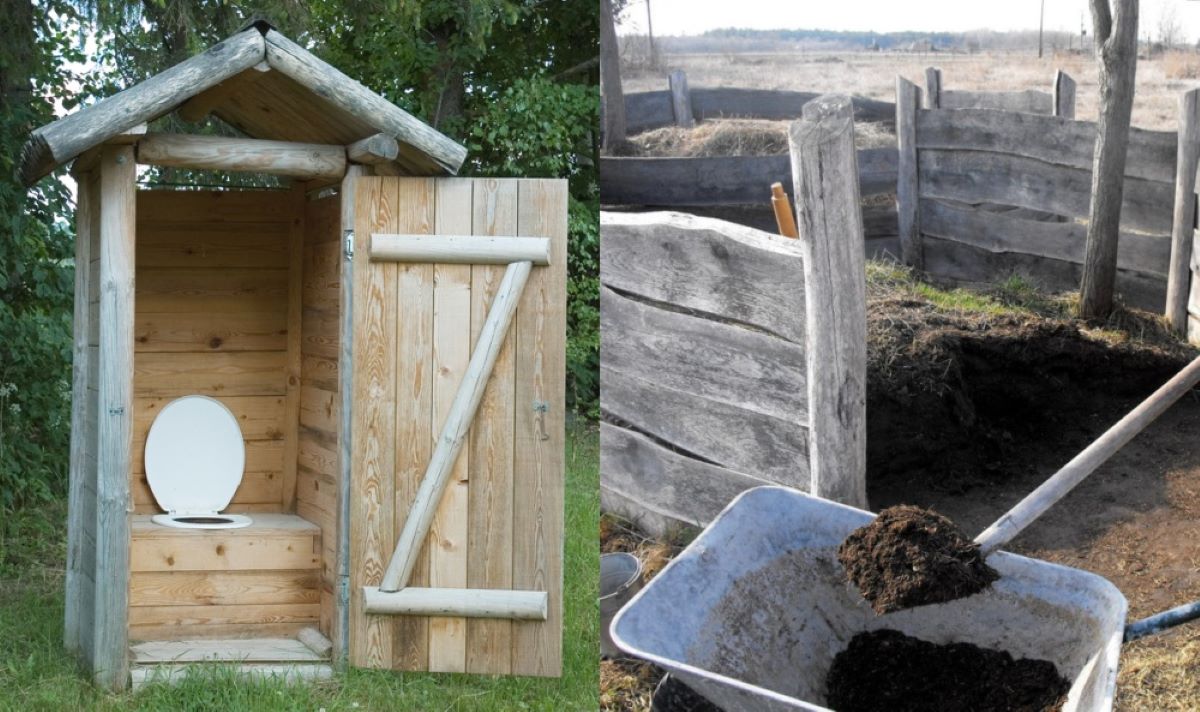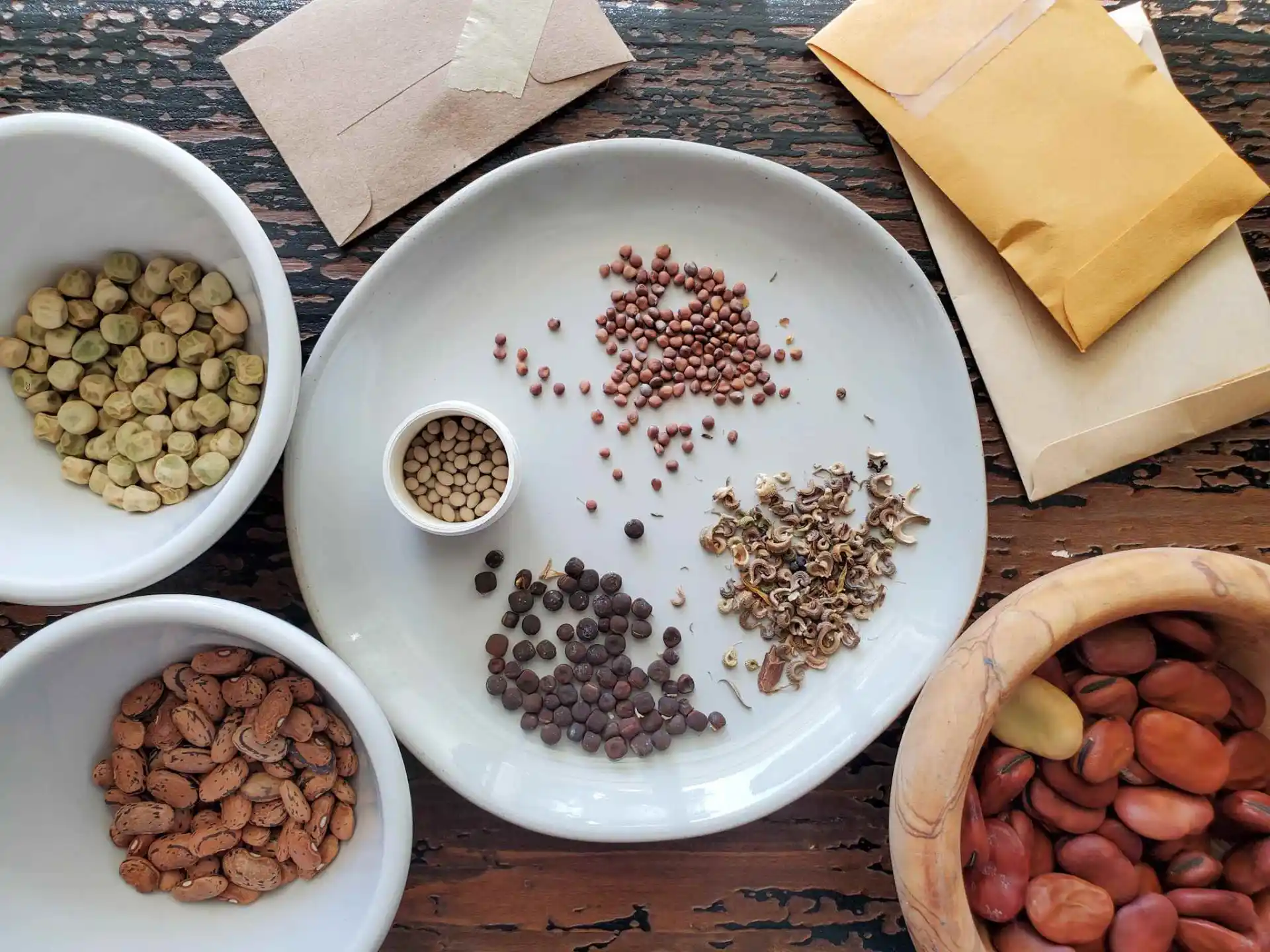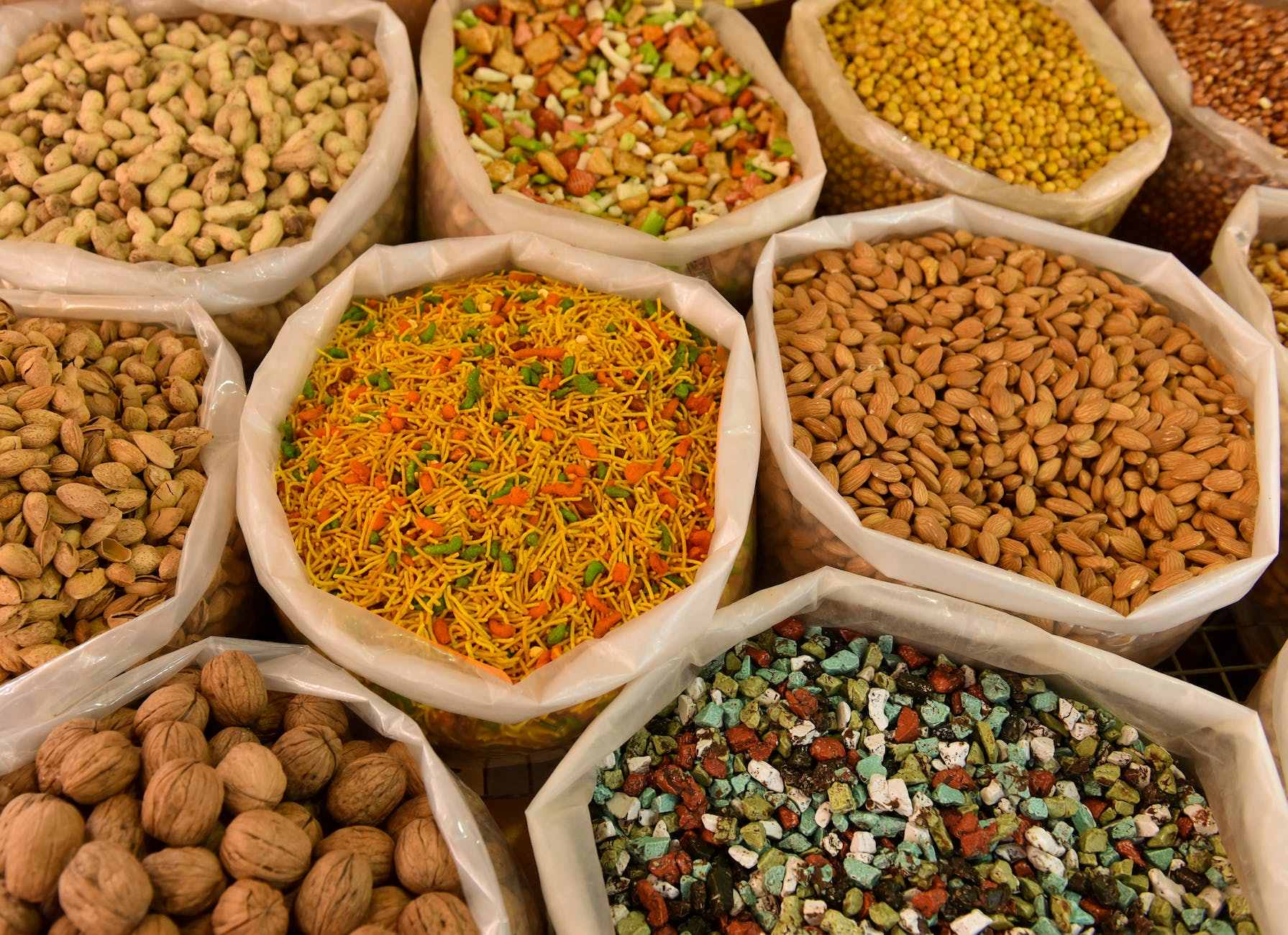Home>Gardening Tips and Tricks>Eco-Friendly Gardening>How Long Does Compost Tea Last


Eco-Friendly Gardening
How Long Does Compost Tea Last
Modified: January 22, 2024
Discover the benefits of compost tea for your eco-friendly gardening practices. Learn how long compost tea remains effective in nourishing your plants.
(Many of the links in this article redirect to a specific reviewed product. Your purchase of these products through affiliate links helps to generate commission for Chicagolandgardening.com, at no extra cost. Learn more)
Table of Contents
Introduction
Welcome to the wonderful world of eco-friendly gardening! In this article, we will explore the topic of compost tea and how it can benefit your garden. Compost tea is a nutrient-rich liquid fertilizer that is made by steeping compost in water. It is a natural and sustainable alternative to chemical fertilizers and pesticides.
As more people become conscious of the impact of chemical-based gardening practices on the environment, there has been a growing interest in eco-friendly gardening methods. Compost tea is one such method that has gained popularity among gardeners of all levels of experience.
Compost tea provides a wide range of nutrients, beneficial microorganisms, and enzymes that work together to nourish soil, promote healthy plant growth, and ward off pests and diseases. It is a cost-effective and environmentally friendly way to improve the health and vitality of your garden.
In this article, we will delve deeper into the world of compost tea and explore its benefits, the factors that affect its shelf life, and how to properly store and extend its usability. We will also touch on what to do with expired compost tea and provide practical insights for incorporating this organic elixir into your gardening routine.
So, whether you are a seasoned gardener looking to enhance your sustainable practices or a beginner hoping to embark on an eco-friendly gardening journey, this article is here to guide you through the world of compost tea.
What is Compost Tea?
Compost tea is a liquid fertilizer that is made by steeping compost in water. It is a natural and nutrient-rich solution that can be used to feed and nourish plants, improve soil health, and enhance overall plant growth. Compost tea is created through a process called aerated compost tea (ACT), where air is continuously pumped into the mixture to stimulate the growth of beneficial microorganisms.
The recipe for compost tea typically includes compost, water, and a source of food for the microorganisms, such as molasses or fish hydrolysate. The compost acts as a nutrient powerhouse, providing essential elements like nitrogen, phosphorus, and potassium, while the microorganisms present in the compost multiply and populate the tea mixture.
These beneficial microorganisms, including bacteria, fungi, protozoa, and nematodes, play a crucial role in building healthy soil ecosystems. They help break down organic matter, improve nutrient availability, and suppress harmful pathogens and pests. As the microorganisms multiply and thrive in the tea, they create a living and dynamic solution that can be applied directly to the soil or sprayed onto the foliage of plants.
One of the significant advantages of compost tea is its versatility. It can be used in various gardening applications, including as a foliar spray, soil drench, or seed inoculant. By utilizing compost tea, gardeners can introduce beneficial microorganisms to their gardens, resulting in increased nutrient uptake, improved plant defenses against pests and diseases, and enhanced overall soil fertility.
Compost tea is also an integral part of sustainable gardening practices. By diverting organic waste from the landfill and transforming it into a valuable resource, gardeners can reduce their environmental footprint and contribute to a healthier ecosystem.
Now that we have a better understanding of what compost tea is and its numerous benefits, let’s explore in more detail how it can improve your garden and promote eco-friendly gardening practices.
The Benefits of Compost Tea
Compost tea offers a wide range of benefits for both plants and the overall health of your garden. Let’s take a closer look at some of the advantages of incorporating compost tea into your eco-friendly gardening practices:
- Enhanced Nutrient Availability: Compost tea acts as a natural fertilizer, supplying plants with a balanced blend of essential nutrients. The microorganisms present in the tea help break down organic matter in the soil, making nutrients more accessible to plant roots. This results in healthier and more vigorous growth.
- Improved Soil Structure: Regular applications of compost tea can enhance the structure of the soil. The microorganisms in the tea promote the development of soil aggregates, which improve the soil’s ability to hold water, increase drainage, and enhance aeration. This creates an optimal growing environment for plants.
- Biocontrol of Pests and Diseases: Compost tea contains beneficial microorganisms that can help control harmful pests and diseases naturally. These microorganisms compete with and suppress pathogenic organisms, reducing the need for chemical interventions. By regularly applying compost tea, you can build a resilient and pest-resistant garden ecosystem.
- Increased Plant Resilience: The beneficial microorganisms in compost tea not only enhance nutrient uptake but also stimulate plant defenses. Studies have shown that plants treated with compost tea exhibit increased resistance to stressful conditions such as drought, temperature fluctuations, and certain diseases. This promotes healthier plants with a greater ability to withstand environmental challenges.
- Reduced Environmental Impact: By utilizing compost tea, you can reduce your reliance on synthetic fertilizers and pesticides. The all-natural composition of compost tea eliminates the risk of chemical runoff into waterways and minimizes harm to beneficial insects and wildlife. It is a sustainable and environmentally friendly alternative to conventional gardening practices.
These are just a few of the many benefits that compost tea can bring to your garden. It is a cost-effective and eco-friendly way to promote soil fertility, improve plant health, and support a thriving ecosystem. Now, let’s explore the aspects that affect the shelf life of compost tea and how to properly store it for maximum effectiveness.
Factors Affecting the Shelf Life of Compost Tea
The shelf life of compost tea can vary depending on several factors. It is important to understand these factors to ensure the effectiveness and quality of your compost tea. Let’s take a look at the main factors that can influence the shelf life of compost tea:
- Aeration: Proper aeration is crucial for maintaining the viability of microorganisms in compost tea. Adequate oxygen supply promotes the growth of beneficial aerobic microorganisms while inhibiting the growth of harmful anaerobic organisms. Insufficient aeration can lead to the development of anaerobic conditions, resulting in the growth of harmful bacteria and the potential spoilage of the tea.
- Temperature: Temperature plays a significant role in the shelf life of compost tea. Higher temperatures can accelerate the growth and reproduction of microorganisms, leading to faster spoilage of the tea. It is important to store compost tea in a cool and shaded area to prolong its shelf life.
- Exposure to sunlight: Compost tea should be protected from direct sunlight as UV radiation can have a detrimental effect on the microorganisms in the tea. UV radiation can kill or damage beneficial bacteria and fungi, reducing the effectiveness of the tea.
- Water quality: The quality of the water used to make compost tea can impact its shelf life. Chlorinated water or water with high levels of contaminants can inhibit the growth of beneficial microorganisms. Using filtered or dechlorinated water can help maintain the viability of the microorganisms and extend the shelf life of the tea.
- Contamination: Compost tea can be prone to contamination if proper hygiene practices are not followed. Contamination can occur from dirty equipment, unclean water sources, or using uncomposted materials. It is essential to use clean equipment, filtered water, and high-quality compost to minimize the risk of contamination and maintain the integrity of the tea.
By understanding these factors, you can take appropriate measures to ensure the longevity of your compost tea. Proper storage and handling techniques are crucial in maintaining the potency and effectiveness of the tea. In the next section, we will discuss how long compost tea typically lasts and the signs of spoiled compost tea.
How Long Does Compost Tea Last?
The shelf life of compost tea can vary depending on various factors such as aeration, temperature, water quality, and contamination. Generally, compost tea is at its most potent and effective within 24 to 48 hours of brewing. During this time, the beneficial microorganisms are actively reproducing and colonizing the tea.
However, as time passes, the microbial population in the tea will naturally decline. After the initial 24 to 48 hours, the potency of the tea may gradually diminish. The rate of decline will depend on the factors mentioned earlier.
If the compost tea is well-aerated, stored in a cool and shaded area, and protected from direct sunlight, it can potentially remain viable for up to 7 to 10 days. However, keep in mind that the effectiveness of the tea may start to diminish after the first 48 hours.
It is important to note that the shelf life of compost tea can be influenced by external factors. For example, hot temperatures can accelerate the growth of microorganisms, causing the tea to spoil more quickly. On the other hand, cold temperatures may slow down the microbial activity, prolonging the shelf life of the tea.
Water quality also plays a role in the shelf life of compost tea. Using high-quality water, such as filtered or dechlorinated water, can help maintain the viability of the microorganisms and extend the shelf life of the tea. Contaminants in the water, such as chlorine or other chemicals, can negatively impact the viability of the microorganisms.
It’s important to closely monitor the appearance and smell of the compost tea as time goes on. If the tea starts to develop a foul odor or begins to look murky or slimy, it is likely that the tea has spoiled and should not be used. Trust your senses when it comes to determining the freshness and viability of the compost tea.
By understanding the typical shelf life of compost tea and the factors that can affect it, you can make informed decisions about when to use and how to properly store your compost tea. In the next section, we will discuss the signs of spoiled compost tea and what to do if your tea has gone bad.
Signs of Spoiled Compost Tea
While compost tea is a valuable organic fertilizer, it is important to be able to recognize the signs that your compost tea has spoiled. Using spoiled compost tea can have negative impacts on your plants and soil, so it’s crucial to be able to identify these indicators. Here are some common signs that your compost tea has gone bad:
- Foul Odor: One of the telltale signs of spoiled compost tea is a strong, unpleasant odor. If your compost tea emits a pungent or rotten smell, it is likely that harmful anaerobic microorganisms have taken over, rendering the tea ineffective or even harmful to your plants.
- Cloudy Appearance: Healthy compost tea should have a clear, golden-brown color. If you notice that your tea has turned murky or has an excessive amount of sediment at the bottom, it may indicate spoilage. The presence of excessive particulate matter can be an indicator of an imbalance in the microbial community or a breeding ground for harmful pathogens.
- Mold Growth: Mold growth is another sign of spoiled compost tea. Mold can arise from improper brewing techniques, poor aeration, or contamination. The presence of mold can indicate the growth of harmful organisms that can potentially harm your plants instead of benefiting them.
- Unusual Texture: Spoiled compost tea may have a slimy or gelatinous texture. This can indicate the presence of harmful bacteria or fungi that have taken over the tea’s microbial community. A healthy compost tea should have a smooth and watery consistency.
- Lack of Bubbling: During the brewing process, compost tea should have an ongoing bubbling or foaming action, indicating the presence of beneficial aerobic microorganisms. If your compost tea lacks this bubbling or fizzing activity, it may be an indication that the tea has lost its viability and is no longer beneficial for your plants.
If you observe any of these signs, it is best to avoid using the compost tea on your plants or soil. Using spoiled compost tea can potentially harm your plants and introduce harmful pathogens instead of nurturing a healthy garden ecosystem.
Remember, prevention is key to avoiding spoilage. Properly aerating your compost tea, storing it in a cool and shaded location, using high-quality water, and maintaining good hygiene practices will help minimize the risk of spoilage and ensure that your compost tea remains effective for as long as possible.
In the next section, we will discuss proper storage techniques to prolong the shelf life of compost tea and maintain its effectiveness.
Proper Storage of Compost Tea
Proper storage of compost tea is essential to maintain its effectiveness and prevent spoilage. Here are some key tips for storing your compost tea:
- Airtight Containers: Transfer your compost tea to clean, airtight containers to prevent exposure to outside contaminants. Glass or food-grade plastic containers with tight-fitting lids are ideal for maintaining the freshness and quality of the tea.
- Refrigeration: Storing compost tea in the refrigerator can help prolong its shelf life. The cooler temperatures slow down the microbial activity, reducing the risk of spoilage. However, avoid freezing the tea, as it can damage the microbial population.
- Keep Away from Sunlight: Sunlight can degrade the quality of compost tea by exposing it to harmful ultraviolet (UV) radiation. Store your containers in a cool, dark area away from direct sunlight, such as in a cupboard or pantry.
- Adequate Ventilation: While it’s important to keep compost tea away from contaminants, ensure that the stored containers have some ventilation to allow for gas exchange. This helps prevent anaerobic conditions and the growth of harmful microorganisms.
- Regular Stirring: If you choose to store your compost tea for an extended period, give it a gentle stir or shake before each use. This helps redistribute the microorganisms that may settle at the bottom of the container.
By following these storage practices, you can maintain the viability and effectiveness of your compost tea for a longer period. However, it’s essential to note that even with proper storage, compost tea will gradually lose its potency over time. It’s generally recommended to use freshly brewed compost tea for optimal results.
Next, let’s explore how you can extend the shelf life of compost tea and get the most out of your brew.
Extending the Shelf Life of Compost Tea
While the shelf life of compost tea may naturally diminish over time, there are several steps you can take to extend its usability and effectiveness:
- Proper Aeration: Adequate aeration is crucial for maintaining the viability of beneficial microorganisms in compost tea. Consider using an aerator or an air stone during the brewing process to ensure a continuous supply of oxygen. Well-aerated compost tea tends to have a longer shelf life.
- Adjust Brewing Time: When brewing your compost tea, consider shortening the brewing time. A shorter brewing period, such as 24 to 36 hours, can help reduce the likelihood of the tea becoming overripe or developing anaerobic conditions, thereby extending its shelf life.
- Use Quality Ingredients: Starting with high-quality compost is essential for producing nutrient-rich and beneficial compost tea. Compost made from a diverse range of materials, free from harmful contaminants, will result in a more potent tea that can maintain its effectiveness for a longer period.
- Use Water Amendments: Adding water amendments such as humic acid or molasses to your compost tea can help feed and sustain the microbial population for an extended period. These amendments provide additional food sources for the microorganisms, promoting their growth and longevity in the tea mixture.
- Regular Monitoring: Regularly inspect your stored compost tea for any signs of spoilage. Check for changes in odor, appearance, or texture. If you notice any unusual developments, discard the tea to prevent the spread of harmful microorganisms.
By implementing these strategies, you can enhance the shelf life of your compost tea and ensure that it remains effective for a longer period. However, it is important to remember that the fresher the compost tea, the more potent and beneficial it will be for your plants.
In the next section, we will discuss whether expired compost tea can still be used and provide insights on its potential applications.
Using Expired Compost Tea
Although the potency and effectiveness of compost tea may diminish over time, expired compost tea can still be utilized to benefit your garden in certain ways. While it may not provide the same level of nutrients and active microorganisms as fresh tea, there are several ways you can still make use of expired compost tea:
- Soil Amendment: Even if the microorganisms in expired compost tea are no longer viable, it can still serve as a valuable soil amendment. The organic matter present in the tea can improve soil structure, increase water retention, and promote beneficial microbial activity in the soil.
- Compost Activator: Expired compost tea can be used as a compost activator, helping to speed up the decomposition process of organic matter in your compost pile. The nutrients and microorganisms in the tea can provide a boost to the composting process, aiding in the breakdown of materials into nutrient-rich compost.
- Foliar Spray: While expired compost tea may not have the same concentration of active microorganisms, it can still be used as a foliar spray for your plants. The organic matter in the tea can provide some nutrition and contribute to the overall health of the foliage, helping plants to thrive.
- Seed Soaking: If you have expired compost tea, you can use it as a seed soaking solution before planting. Soaking seeds in the tea can help provide a mild boost of nutrients and potentially introduce some beneficial microorganisms to the seed coat, supporting germination and early seedling growth.
- Compost Tea Starter: Expired compost tea can be used as a starter or inoculant when brewing a fresh batch of compost tea. Adding a small amount of expired tea to the new brew can introduce some residual microorganisms and serve as a nutrient source, kickstarting the growth of beneficial organisms in the fresh tea.
While expired compost tea may not have the same effectiveness as fresh tea, it can still contribute to the overall health of your garden. It is important to note that these applications are more suitable for expired tea that does not exhibit signs of spoilage or harmful microorganisms.
Remember, it is always best to use fresh compost tea for optimal results. Regularly brewing fresh batches of compost tea will ensure a higher concentration of active microorganisms and nutrients, providing your plants with the best possible care.
Now that we have explored the potential applications for expired compost tea, let’s summarize the key points discussed in this article.
Conclusion
Eco-friendly gardening practices are becoming increasingly important in our efforts to preserve the health of our planet and create sustainable landscapes. Compost tea is a valuable tool for eco-conscious gardeners, providing a natural and nutrient-rich solution to nourish plants and enhance soil fertility.
In this article, we have explored what compost tea is and the numerous benefits it offers. Compost tea promotes enhanced nutrient availability, improved soil structure, biocontrol of pests and diseases, increased plant resilience, and reduced environmental impact. It is a sustainable and cost-effective alternative to synthetic fertilizers and pesticides.
We also discussed the factors that can affect the shelf life of compost tea, including aeration, temperature, water quality, and contamination. Proper storage techniques, such as using airtight containers, refrigeration, and protecting the tea from sunlight, can help extend its usability and effectiveness.
Furthermore, we learned about the signs of spoiled compost tea and the importance of regular monitoring and proper hygiene practices. Recognizing the signs of spoilage, such as foul odor, cloudy appearance, mold growth, unusual texture, and lack of bubbling, is vital to avoid using ineffective or harmful compost tea.
Although the potency of compost tea may diminish over time, expired compost tea can still be utilized as a soil amendment, compost activator, foliar spray, seed soaking solution, or a starter for brewing fresh batches of tea.
By incorporating compost tea into your gardening routine and implementing proper brewing and storage techniques, you can reap the rewards of healthier plants, improved soil health, and a more sustainable and eco-friendly garden.
So, whether you are a seasoned gardener or just starting your journey into eco-friendly gardening, don’t hesitate to give compost tea a try and experience its multitude of benefits. Your garden and the environment will thank you!
